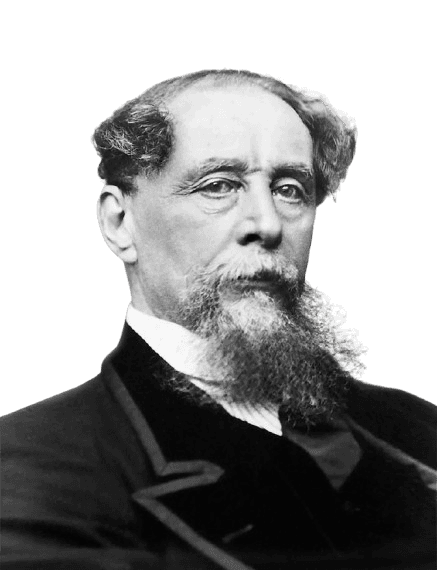Life and achievements
Early life
Charles Dickens was born on February 7, 1812, in Portsmouth, England, the second of eight children to John and Elizabeth Dickens. His father, John Dickens, was a clerk in the Navy Pay Office, while his mother, Elizabeth Dickens, wished to be a teacher and a school manager. John changed jobs often, and the family had to shift residences frequently. It was in London that Charles grew up.
The early years of Dickens were joyful. However, the poor management of his father's finances resulted in his arrest in the Marshalsea debtor's prison when Charles was 12. This event made Charles drop out of school and work in a boot-blacking factory, which made him have a negative experience, and this made him depict child labour and poverty in his later works. Nevertheless, Dickens returned to school when his father was released from the debtors' prison.
The family's ordeal affected Dickens and influenced his perception of the world, motivating him to share the stories of the needy and oppressed. His clear recollection of this period made it easier for him to develop the characters and situations that would capture the readers' attention. Dickens's life from 12 to 21 was decisive for his ability to identify with low-income people and articulate the need for social change.
Legacy
Charles Dickens' work is still popular and relevant today; his novels are adapted for screen and stage and remain popular with readers. His impact on literature is significant. How he describes events, develops characters, and depicts society in the novel is unforgettable. Thus, Dickens's works are not just limited to the Victorian era but are still interesting to readers of the modern world.
Dickens's depiction of Victorian society, with the clear division between the rich and the poor, is still relevant today. This has made him remain relevant in society through his works depicting social issues and the sufferings of low-income people. It is possible to speak about such terms as "Dickensian," which has become a part of the English language, to describe something that has something in common with the gloomy atmosphere and the characters of the novels by Charles Dickens.
However, not only did his literary works leave a significant impact, but Dickens' contribution to society's welfare is also notable. He championed children's rights, education, and decent work for all, contributing to social change. Many museums, institutions, and festivals related to Dickens worldwide prove that Dickens is still famous and people still love him.
The works of Charles Dickens are also famous in the present time through various film and television adaptations. For example, "A Christmas Carol" has become one of the most renowned works associated with Christmas and influences the contemporary perception of the holiday. His novels are still popular with this generation and still influence many people to read and write, so the legacy of Charles Dickens will never be forgotten.
Join Confinity and create a lasting digital legacy, just like history's greatest minds. Signup Now
Learn how this historical figure's legacy continues to shape our world today →
Milestone moments
Feb 14, 1812
Birth in Portsmouth
Charles Dickens was born on February 7, 1812, in Portsmouth, England.
He was the second of eight children that John and Elizabeth Dickens had.
His childhood was nomadic because his father worked as a clerk in the Navy Pay Office.Office.
Mar 9, 1824
Father's Imprisonment and Work in a Blacking Factory
In 1824, John Dickens was sent to a debtors' prison, significantly affecting the young Charles Dickens.
Charles Dickens had a rather unhappy childhood. At 12, he quit school and worked at a blacking factory to support his family.
Child labour and the family's financial difficulties were the major factors that shaped his later work and social activism.
Oct 15, 1836
The Publication of "The Pickwick Papers"
In 1836, he released "The Pickwick Papers," which proved very popular.
This work paved the way for Dickens's writing and can be seen as the beginning of his career.
Oct 10, 1843
Publication of the Novel "A Christmas Carol"
Dickens wrote "A Christmas Carol" in 1843, which has become one of his most famous works.
The themes of redemption, charity, and the spirit of Christmas have ensured that the novella is one of the most famous pieces of winter literature.
